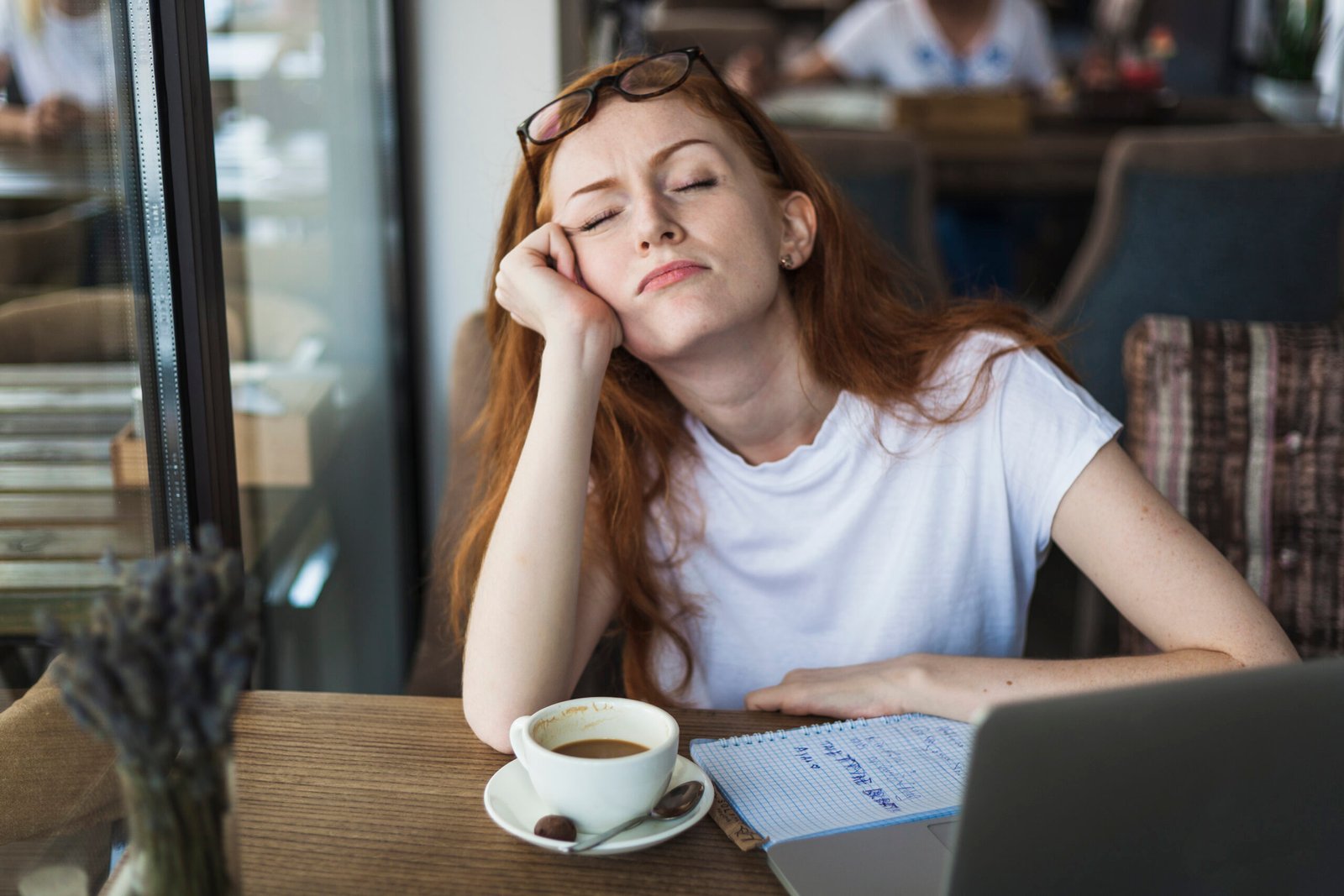If you’ve been tossing and turning at night, it’s time to ask yourself an important question: “How long does caffeine last in my system?” You may be surprised to discover that your daily coffee habit could be interfering with your slumber, long after your last sip.
Understanding the Basics of Caffeine
Caffeine is a naturally occurring stimulant found in various food and drink products, such as coffee, tea, chocolate, and some energy and soft drinks. Its primary function is to stimulate the brain and central nervous system, which can help reduce feelings of fatigue and keep you feeling alert and focused. This is why many of us often reach for a cup of coffee first thing in the morning; it provides an effective boost to kick off the day. However, consuming caffeine late in the day can potentially disrupt your sleep. Even though you might feel the effects of caffeine wear off after a few hours, it stays in your system for much longer. This means that your afternoon cup of coffee or energy drink could still be influencing your sleep pattern, leading to a restless night.
So, understanding how long caffeine stays in your system can help you manage your intake better and potentially improve your sleep quality.
What is Caffeine’s Half-Life?
The term “half-life” refers to the duration required for the body to naturally process and eliminate half of the ingested caffeine. On a broad spectrum, the half-life of caffeine is usually around 5 to 6 hours. However, it’s crucial to remember that this is a general average and can greatly vary from one individual to another. Factors such as age, liver health, pregnancy status, and the presence of specific medications in your system can significantly impact how long caffeine remains in your body.
For instance, older individuals or those with compromised liver function may experience a prolonged caffeine half-life. Similarly, pregnant women might also notice a substantial increase in their caffeine half-life. Hence, even if you consume caffeine early in the afternoon, it could still linger in your system by bedtime, potentially disrupting your sleep.
The Impact of Caffeine on Sleep
Caffeine, although enjoyed by many for its stimulating effects, can pose certain challenges to our sleep patterns. By meddling with our body clock, caffeine can delay the onset of sleep, reducing the total duration of slumber. While you may not necessarily struggle to fall asleep after caffeine consumption, the quality of your sleep may be compromised.
The ability to transition into deeper sleep stages, which are essential for restoration and rejuvenation, may be hampered due to caffeine. Consequently, even after a seemingly adequate duration of sleep, you may wake up feeling less refreshed.
Moreover, excessive consumption may lead to episodes of wakefulness throughout the night, adding to the disruption in sleep. As caffeine has a long half-life, its impact may extend into your bedtime, especially if consumed later in the day. This further emphasizes the importance of understanding the duration of caffeine’s stay in our system and its impact on our sleep health.
How Long Does Caffeine Stay in Your System?
While the average half-life of caffeine is typically 5 hours, indicating that it takes about this long for half of the caffeine to be metabolized, this doesn’t paint the whole picture. The actual process of completely eliminating caffeine from your system extends far beyond this timeframe. This process, depending on several factors, including individual metabolic rate, age, and general health status, can take anywhere from 10 to 15 hours. That means, if you consume caffeine in the afternoon or evening, it’s possible that a substantial amount might still be present in your system at bedtime, potentially interfering with your sleep.
It’s also important to bear in mind that caffeine’s half-life can significantly increase during pregnancy or in individuals with compromised liver health, further prolonging the time caffeine remains in the system.
Remember, it’s not just the feeling of alertness that lingers; the physical presence of caffeine in your body can continue to affect your sleep hours after the mental effects have diminished.
Reducing Caffeine for Better Sleep
If the connection between caffeine and sleep issues is resonating with you, it might be time to rethink your caffeine consumption habits. An effective approach is to limit your caffeine intake to the earlier part of the day. This allows ample time for your body to metabolize the caffeine and reduce its effects by bedtime. Aim to avoid caffeine-rich products for a minimum of 6 hours before you plan to sleep. Opting for decaffeinated versions of your favorite beverages can also be an excellent choice.
Alternatively, there are several other types of drinks you can try that won’t disrupt your sleep, such as herbal teas. These beverages can not only offer a comforting ritual but also provide a calming effect that can help you wind down for the night. Consider these options as a strategy to ensure caffeine is less likely to interfere with your precious sleep hours.
Individual Differences in Caffeine Metabolism
It’s important to remember that everyone’s body handles caffeine differently. In fact, the genetic makeup of an individual can greatly influence how they metabolize caffeine. For instance, some people might find that even a small dose of caffeine can lead to feelings of restlessness and anxiety. On the other hand, there are those who can consume several cups of coffee in a day and not experience any noticeable side effects. Additionally, lifestyle factors such as smoking or being on birth control can also affect how your body processes caffeine. This variability in metabolism means that there isn’t a one-size-fits-all rule for caffeine consumption and its effects on sleep. It’s essential to observe your own body’s reactions and adjust your caffeine intake accordingly to ensure it doesn’t disrupt your sleep. Understanding this variation can help tailor a personal approach to managing your caffeine consumption for optimal sleep health. Remember, everyone is different, and what works best for you may not work as well for someone else.
Common Questions and Additional Information
What are some natural alternatives to caffeine that can provide a similar boost in energy without interfering with sleep?

You could opt for caffeine-free herbal teas like chamomile, peppermint, or lavender, which are known for their calming properties. Foods rich in Vitamin B, such as whole grains, eggs, and bananas, can also give you a sustained energy boost.
You might also want to consider practices like regular physical exercise and adequate hydration, which can help increase alertness and energy without interfering with your sleep. Monitoring and adjusting your caffeine intake while exploring natural alternatives can help you enjoy the best of both worlds: increased energy during the day and a peaceful sleep at night.
Does consuming caffeine through different methods, such as coffee vs. energy drinks, affect its half-life or overall impact on sleep?
The method of caffeine intake does indeed play a role in its impact on sleep. Both coffee and energy drinks contain caffeine, but they often differ in their caffeine content and the speed at which the caffeine is absorbed into the bloodstream. For instance, energy drinks often contain a higher amount of caffeine compared to a regular cup of coffee and may also contain additional stimulants like guarana and taurine, which can prolong the effects of caffeine.
Coffee, on the other hand, is typically consumed hot, which can slow the rate of consumption and, hence, the speed of caffeine absorption. Furthermore, factors like whether you consume these beverages on an empty stomach or alongside food can also influence the rate of caffeine absorption. However, regardless of the method of intake, once caffeine is in your system, its half-life remains the same. The ultimate impact on your sleep would depend on the amount of caffeine consumed and the timing of consumption.
The Bottom Line
Knowing the duration of caffeine’s stay in your system can play a pivotal role in ensuring restful sleep. While the benefits of caffeine, such as increased alertness and focus, are undeniable, it’s critical to strike a balance. If you’ve been having sleep difficulties, it could be helpful to scrutinize your caffeine habits. Modifying your intake could be the key to improving your sleep health. Understanding the variability in individual caffeine metabolism can help devise a personalized approach. So, whether you’re an avid coffee drinker or indulge in occasional energy drinks, being aware of caffeine’s long half-life and its potential to interfere with your sleep can guide healthier consumption choices. Remember, quality sleep is the foundation for a fruitful day!

